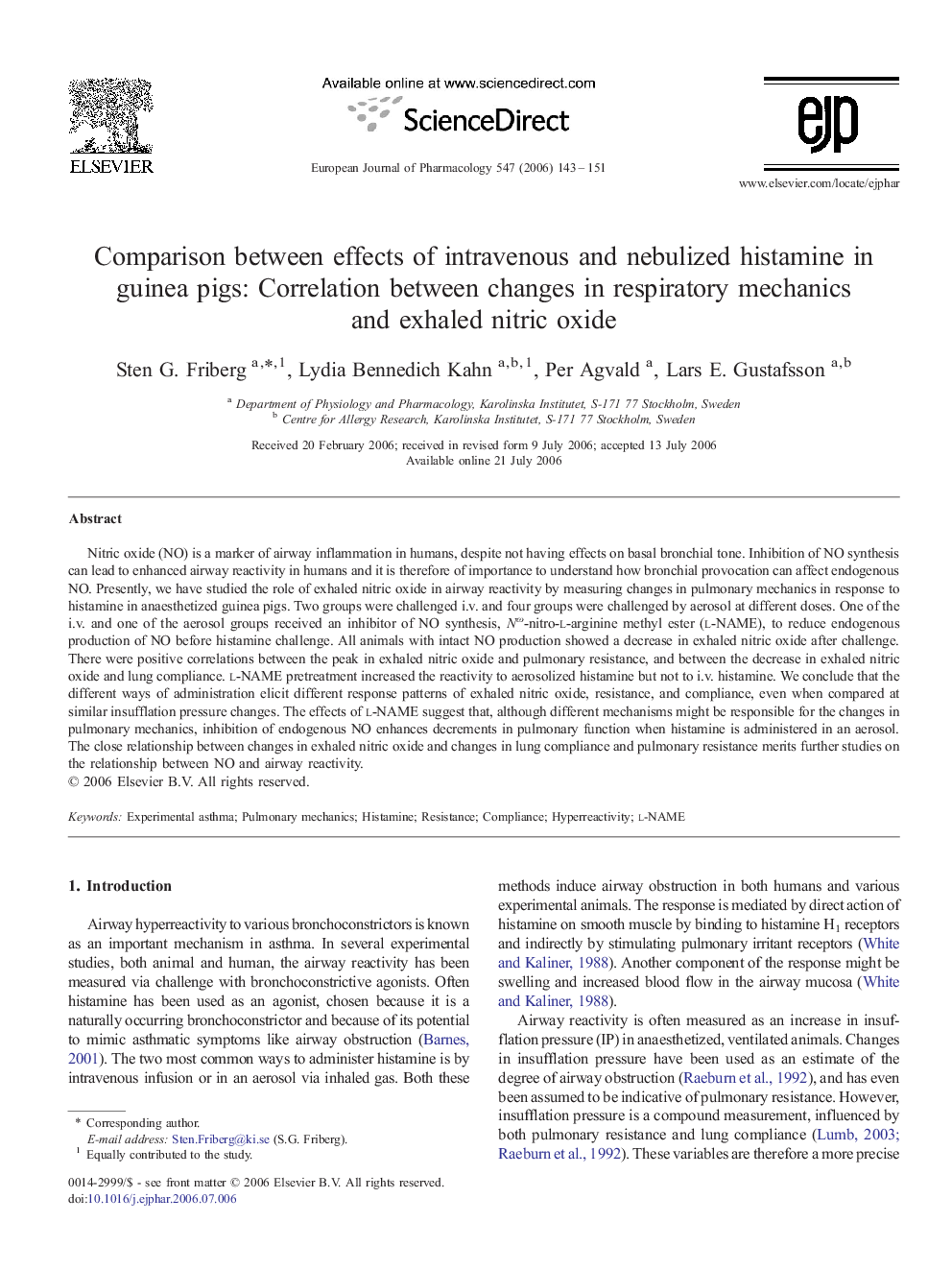| Article ID | Journal | Published Year | Pages | File Type |
|---|---|---|---|---|
| 2536857 | European Journal of Pharmacology | 2006 | 9 Pages |
Abstract
Nitric oxide (NO) is a marker of airway inflammation in humans, despite not having effects on basal bronchial tone. Inhibition of NO synthesis can lead to enhanced airway reactivity in humans and it is therefore of importance to understand how bronchial provocation can affect endogenous NO. Presently, we have studied the role of exhaled nitric oxide in airway reactivity by measuring changes in pulmonary mechanics in response to histamine in anaesthetized guinea pigs. Two groups were challenged i.v. and four groups were challenged by aerosol at different doses. One of the i.v. and one of the aerosol groups received an inhibitor of NO synthesis, NÏ-nitro-l-arginine methyl ester (l-NAME), to reduce endogenous production of NO before histamine challenge. All animals with intact NO production showed a decrease in exhaled nitric oxide after challenge. There were positive correlations between the peak in exhaled nitric oxide and pulmonary resistance, and between the decrease in exhaled nitric oxide and lung compliance. l-NAME pretreatment increased the reactivity to aerosolized histamine but not to i.v. histamine. We conclude that the different ways of administration elicit different response patterns of exhaled nitric oxide, resistance, and compliance, even when compared at similar insufflation pressure changes. The effects of l-NAME suggest that, although different mechanisms might be responsible for the changes in pulmonary mechanics, inhibition of endogenous NO enhances decrements in pulmonary function when histamine is administered in an aerosol. The close relationship between changes in exhaled nitric oxide and changes in lung compliance and pulmonary resistance merits further studies on the relationship between NO and airway reactivity.
Related Topics
Life Sciences
Neuroscience
Cellular and Molecular Neuroscience
Authors
Sten G. Friberg, Lydia Bennedich Kahn, Per Agvald, Lars E. Gustafsson,
